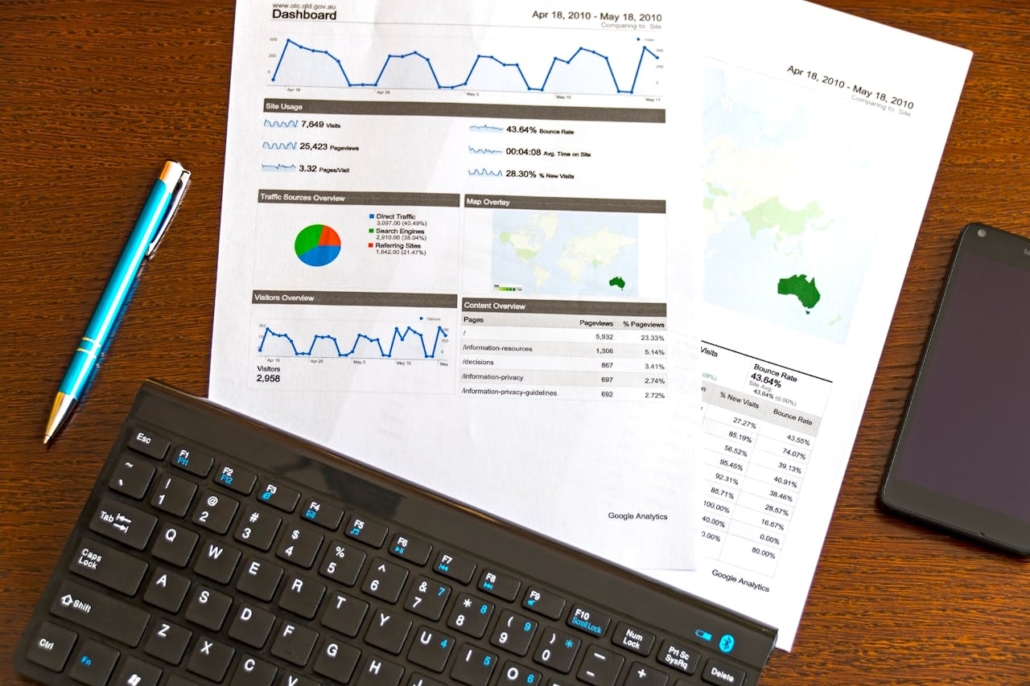What is Data-Driven Digital Marketing?
Data-driven digital marketing is the strategic use of data to optimize and personalize marketing efforts, driving measurable outcomes. Instead of relying on assumptions or generic marketing tactics, data-driven digital marketing utilizes various forms of data—such as customer behavior, preferences, engagement metrics, and demographics—to inform decision-making and craft highly targeted campaigns. By leveraging data from multiple channels, such as social media, websites, email, and customer databases, marketers can refine their strategies and achieve higher returns on investment (ROI).
Key Components of Data-Driven Digital Marketing
- Data Collection: Gathering data from different touchpoints like website analytics, customer interactions, surveys, social media, and advertising platforms.
- Data Analysis: Using analytical tools to interpret data, identify trends, and uncover insights into customer behavior.
- Segmentation: Dividing your audience into smaller, more precise groups based on their characteristics and behaviors, such as purchase history, interests, or demographics.
- Personalization: Tailoring content, messages, and offers to individual customer segments based on their preferences, creating a more relevant experience.
- Automation: Utilizing marketing automation tools to streamline repetitive tasks, such as email marketing or ad targeting, based on data insights.
- Performance Measurement: Continuously tracking the performance of campaigns through KPIs like conversion rates, click-through rates, and customer lifetime value.
Why You Need Data-Driven Digital Marketing for Your Business
In today’s competitive and technology-driven business landscape, relying on gut feelings or outdated marketing techniques no longer cuts it. Data-driven digital marketing has emerged as a critical strategy for any business looking to enhance its reach, efficiency, and ROI. Here’s why adopting a data-driven approach can transform your business:
1. Improved Decision-Making
Data eliminates guesswork. By using solid, factual data, you make informed decisions that are based on actual performance metrics rather than hunches. For example, data analytics can show you which products are popular, which demographics are engaging with your content, and what time of day your audience is most active. With this level of insight, you can tweak your strategies to focus on what works and reduce efforts in areas that don’t.
Example:
- Before: A retail store runs generic Facebook ads targeting a broad audience.
- After: Through data analysis, the store identifies its core audience as women aged 25-35 interested in fitness. The business refines its ad targeting, leading to a significant increase in conversions.
2. Enhanced Personalization
Personalization is a game-changer. Today’s consumers expect marketing messages and experiences that are tailored to their needs and preferences. Data-driven marketing allows you to segment your audience based on factors like location, previous purchases, browsing behavior, and more. With this information, you can deliver highly personalized messages, product recommendations, or offers that resonate deeply with each individual or group.
Example:
- Before: Sending the same email newsletter to all customers.
- After: Using segmentation, customers receive personalized emails highlighting products they’ve shown interest in or similar items based on their purchase history.
3. Better Customer Experience
Customer experience is a major differentiator in today’s marketplace, and data-driven marketing enhances this by delivering what customers want, when they want it. With a better understanding of your audience’s needs and behavior, you can offer more relevant content, products, and solutions. This leads to improved engagement, satisfaction, and loyalty.
Example:
- Before: A website displays generic content to all users.
- After: By analyzing data on returning users, the site dynamically serves personalized content—like showing visitors specific articles or products based on their previous visits—leading to a more engaging experience.
4. Increased ROI
Data-driven digital marketing optimizes your marketing spend. With precise targeting and personalized messages, you reduce wasted ad spend and focus resources where they are most effective. By continuously monitoring and refining your campaigns based on performance data, you can achieve better results with less investment.
Example:
- Before: Running a nationwide pay-per-click (PPC) campaign with no specific targeting, resulting in low conversion rates.
- After: Data reveals that most conversions come from certain cities and specific times of day. The business refines the campaign, concentrating its budget on those key factors, leading to a substantial increase in ROI.
5. More Accurate Forecasting and Trends
Analyzing past data allows you to predict future trends. For instance, you can identify seasonal spikes in demand, forecast customer behavior, and better understand market trends. This predictive power enables proactive rather than reactive marketing strategies, helping you stay ahead of competitors.
Example:
- Before: A business launches new products at random times throughout the year, with mixed success.
- After: The business uses data to understand seasonal trends and customer demand cycles, allowing them to launch new products at peak times for maximum impact.
6. Enhanced Competitiveness
In a competitive market, businesses that leverage data effectively can stay ahead of those that don’t. By optimizing every aspect of your marketing—such as targeting, messaging, and timing—you’re more likely to capture the attention of your audience and convert leads into customers. Moreover, data helps you stay agile, allowing for faster pivots and adjustments in response to changing market conditions or consumer behavior.
Example:
- Before: A local restaurant relies on word of mouth and generic social media posts to attract diners.
- After: With data-driven strategies, they target nearby professionals with lunchtime deals through social media ads based on geo-location and browsing behavior, increasing foot traffic during off-peak hours.
7. Effective Multichannel Marketing
Data-driven marketing enables seamless integration across multiple platforms and channels. Whether it’s email, social media, PPC, SEO, or content marketing, you can track the effectiveness of each channel, see how they interact, and optimize the customer journey accordingly. By understanding which channels work best for specific segments, you can create a consistent and effective message across all touchpoints.
Example:
- Before: The marketing team runs separate campaigns on different platforms with no cohesive strategy.
- After: Data shows that customers who engage with social media ads are more likely to purchase when they also receive email offers. The business integrates its campaigns for a unified, cross-channel experience, boosting conversions.
8. Agility and Real-Time Optimization
With real-time data available through platforms like Google Analytics, Facebook Insights, or CRM tools, you can quickly identify underperforming campaigns and make on-the-fly adjustments. This agility helps you to maximize performance without wasting time or resources on strategies that aren’t working.
Example:
- Before: A business commits to a month-long PPC campaign without making any changes or updates based on early performance data.
- After: By tracking performance in real time, the business notices low engagement in the first week and shifts ad copy and targeting immediately, improving the campaign’s effectiveness before it’s too late.
Conclusion: The Future of Marketing is Data-Driven
In the digital age, businesses must embrace data-driven digital marketing to remain competitive. The insights gained from customer data allow you to deliver more personalized, engaging, and effective marketing campaigns that drive measurable results. By leveraging data, you can make informed decisions, optimize your marketing strategies, and improve customer satisfaction—all of which contribute to increased ROI and long-term success.
For businesses looking to scale, adapt, and thrive in an ever-changing digital landscape, adopting a data-driven approach to digital marketing is no longer optional—it’s essential.

